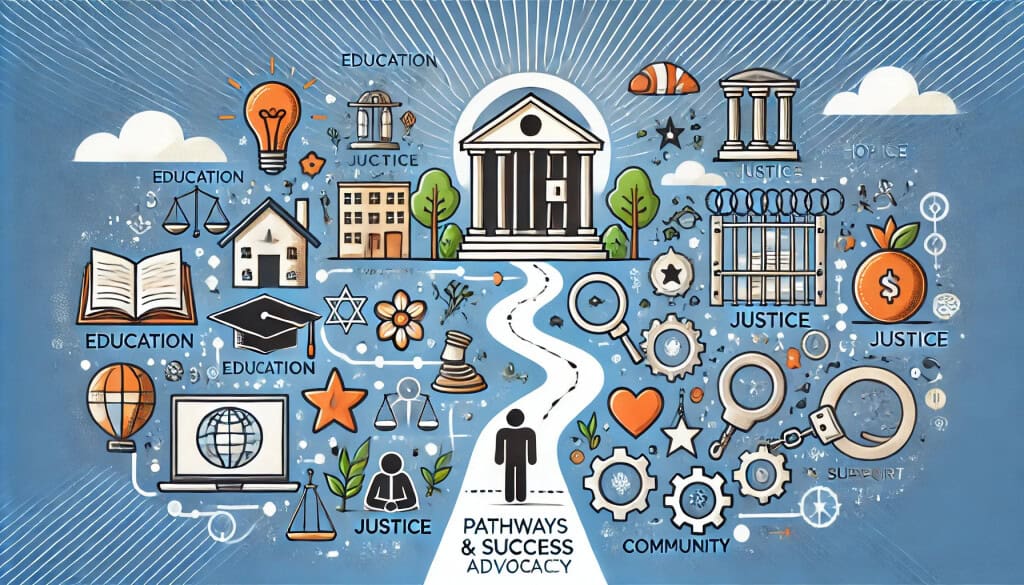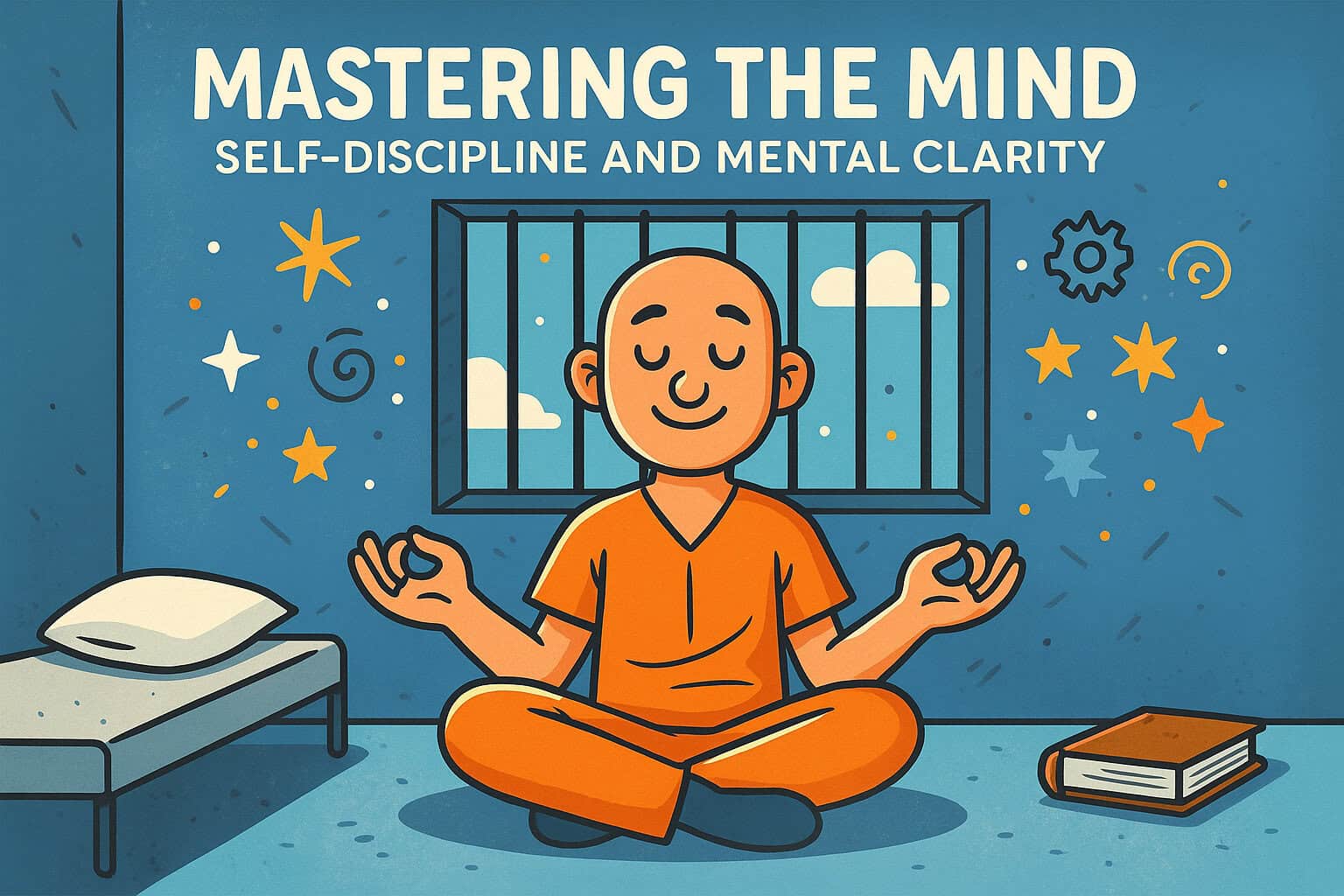For people inside prison walls and the loved ones who support them from the outside, life can feel like a constant judgment—of your past, your worth, your future. But what if the real path to peace, growth, and freedom isn’t found in changing others’ minds, but in changing your own?
That’s where self-love comes in.
In a world that can seem cruel and chaotic, especially behind bars, self-love is more than just a buzzword. It’s a survival skill. It’s a muscle you build when no one else is there to lift you up. And it may just be the key to transforming your time inside into a foundation for everything that comes after.
Let’s explore what true self-love means and how you can begin practicing it today.
What Is Self-Love?
Self-love is not arrogance. It’s not selfishness. It’s the quiet, steady act of treating yourself with the same care, forgiveness, and dignity that you’d give to someone you truly love.
Maya Angelou put it perfectly:
“I do not trust people who don’t love themselves and yet tell me, ‘I love you.’ Be careful when a naked person offers you a shirt.”
The Hard Truth: Some People Can’t Love You Back
There will be times—inside prison or out—when people will hurt you. Sometimes intentionally. Sometimes because they’re hurting, too. You might feel confused or question what’s wrong with you. But the truth is, other people’s inability to love you is never proof that you are unlovable.
As Brené Brown writes:
“You either walk inside your story and own it, or you stand outside your story and hustle for your worthiness.”
Self-love is refusing to hustle for your worth. It’s standing in your own story with your head high—even if no one claps.
In prison, the lack of control over your environment can feel overwhelming. Words and looks become weapons. Criticism can hit deep. But self-love creates a kind of armor:
- It lets you walk away from petty conflicts.
- It gives you the strength to say, “I matter,” even when the system says otherwise.
- It reminds you that no one else decides your worth.
When you truly respect yourself, everything changes: how you talk, how you carry yourself, how you treat others, and how you recover from mistakes.
Timeless Wisdom from Powerful Voices
You’re not alone on this journey. Some of the world’s greatest thinkers and survivors have echoed the same message:
- Brené Brown: “Talk to yourself like someone you love.”
- Edmond Mbiaka: “No other love, no matter how genuine, can fulfill your heart better than unconditional self-love.”
- Hafez: “I wish I could show you… the astonishing light of your own being.”
Even behind prison walls, that light still shines.
How to Practice Self-Love in Prison (or Anywhere)
• Use a notebook or piece of paper to journal each night.
• Ask yourself: What did I do well today? What can I improve?
• Be honest, but kind. Progress beats perfection.
2. Read to Grow
• Choose books that expand your view: memoirs, philosophy, history.
• Suggested reads: Meditations by Marcus Aurelius, The Autobiography of Malcolm X, Man’s Search for Meaning by Viktor Frankl.
• When emotions run high, pause.
• Take 3 slow, deep breaths.
• Remind yourself: “I control my response.”
4. Don’t Engage Every Argument
• As a wise parable says, don’t argue with donkeys.
• Protect your peace. You don’t need to win every battle to win the war.
• Say it out loud: “I am learning. I am growing. I am enough.”
• Write it on your bunk, your journal, your mind.
For Families on the Outside
Loved ones can help too:
• Send uplifting books.
• Share affirmations and wisdom in letters.
• Join in self-love exercises together. If your loved one is journaling, journal with them.
• Celebrate small wins. Progress is worth noticing.
Your Story Isn’t Over
Self-love doesn’t mean you forget the past. It means you stop letting the past define you. It means building a future from the inside out.
“They can lock my body, but not my mind.”
That’s the mindset of a free person.
When you begin to love yourself, you become less dependent on approval, less reactive to conflict, and more focused on your own growth. You walk with purpose. You stop asking, “Am I good enough?” and start declaring, “I am becoming who I was meant to be.”
And that’s real power.
Final Thoughts: A New Kind of Strength
Self-love won’t always be easy. There will be days when you slip, when your old wounds speak louder than your new voice.
But keep going.
Love yourself not because the world told you to—but because you’ve earned it.
Because you survived.
Because your peace is priceless.
Because one day, when you walk out those gates, the world will try to tell you who you are.
And you’ll already know!
About Pathways to Success and Georgia Prisoners Speak (GPS)

At Georgia Prisoners Speak (GPS), we believe that education is one of the most powerful tools for breaking cycles of incarceration and building a better future. That’s why we created the Pathways to Success program—a dedicated initiative providing educational resources, skill-building guides, and financial literacy tools tailored specifically for prisoners and their families.
GPS is a prison reform advocacy platform focused on exposing systemic injustices, pushing for policy change, and empowering incarcerated individuals with the knowledge they need to successfully re-enter society. Our educational articles are part of this mission, ensuring that those impacted by incarceration have access to practical guidance that can help them build stability, opportunity, and financial independence.
To explore more resources, visit Pathways to Success.

